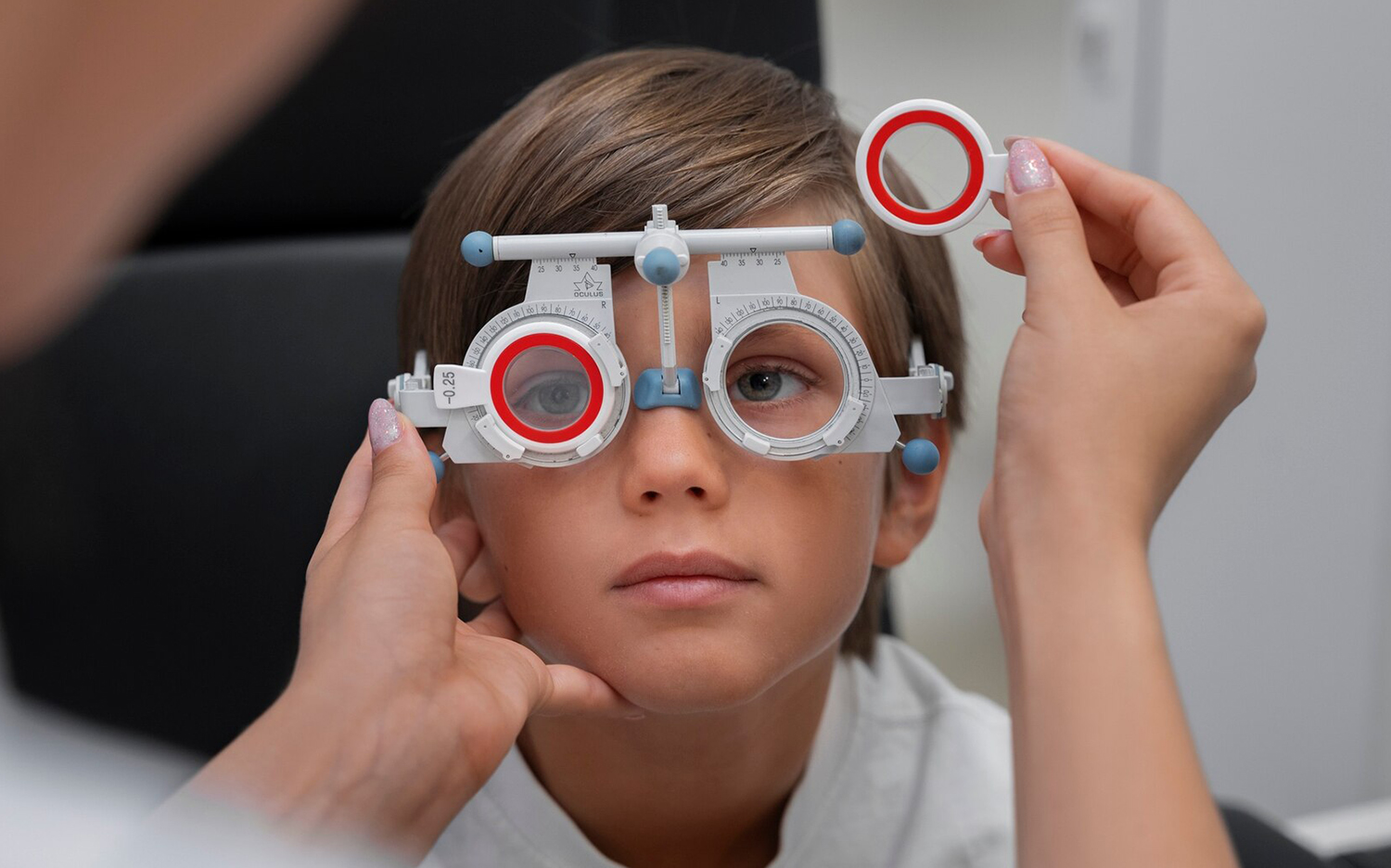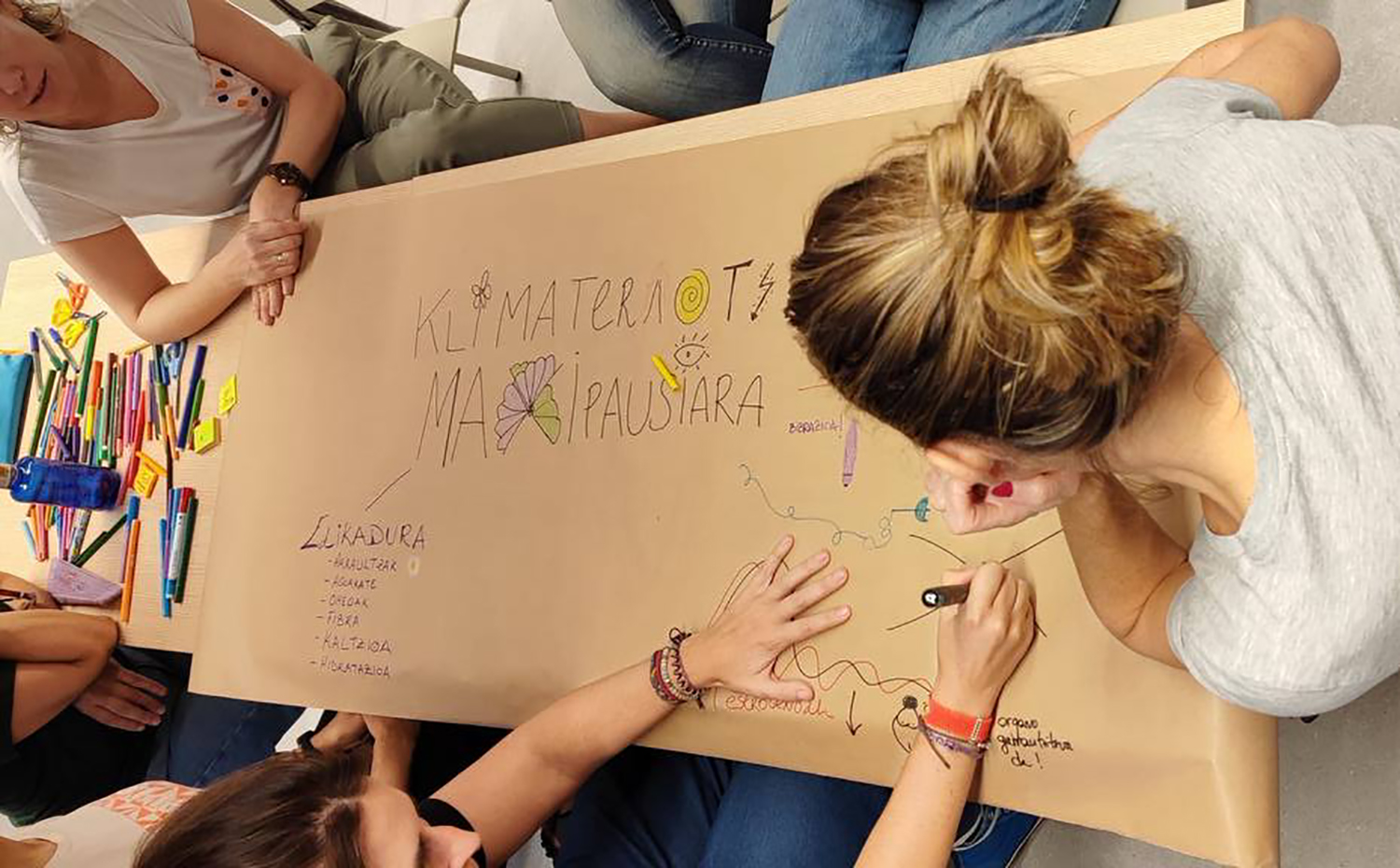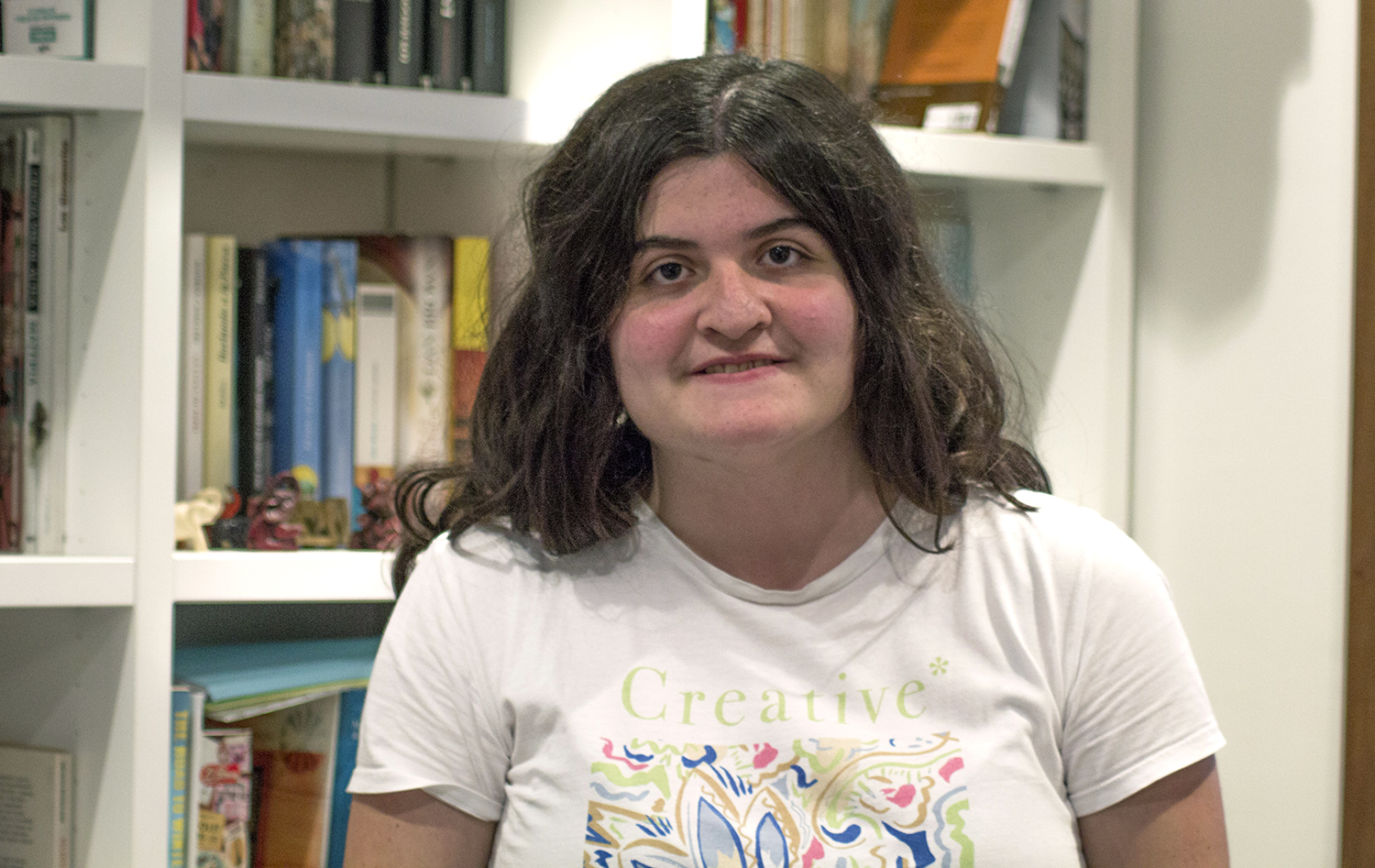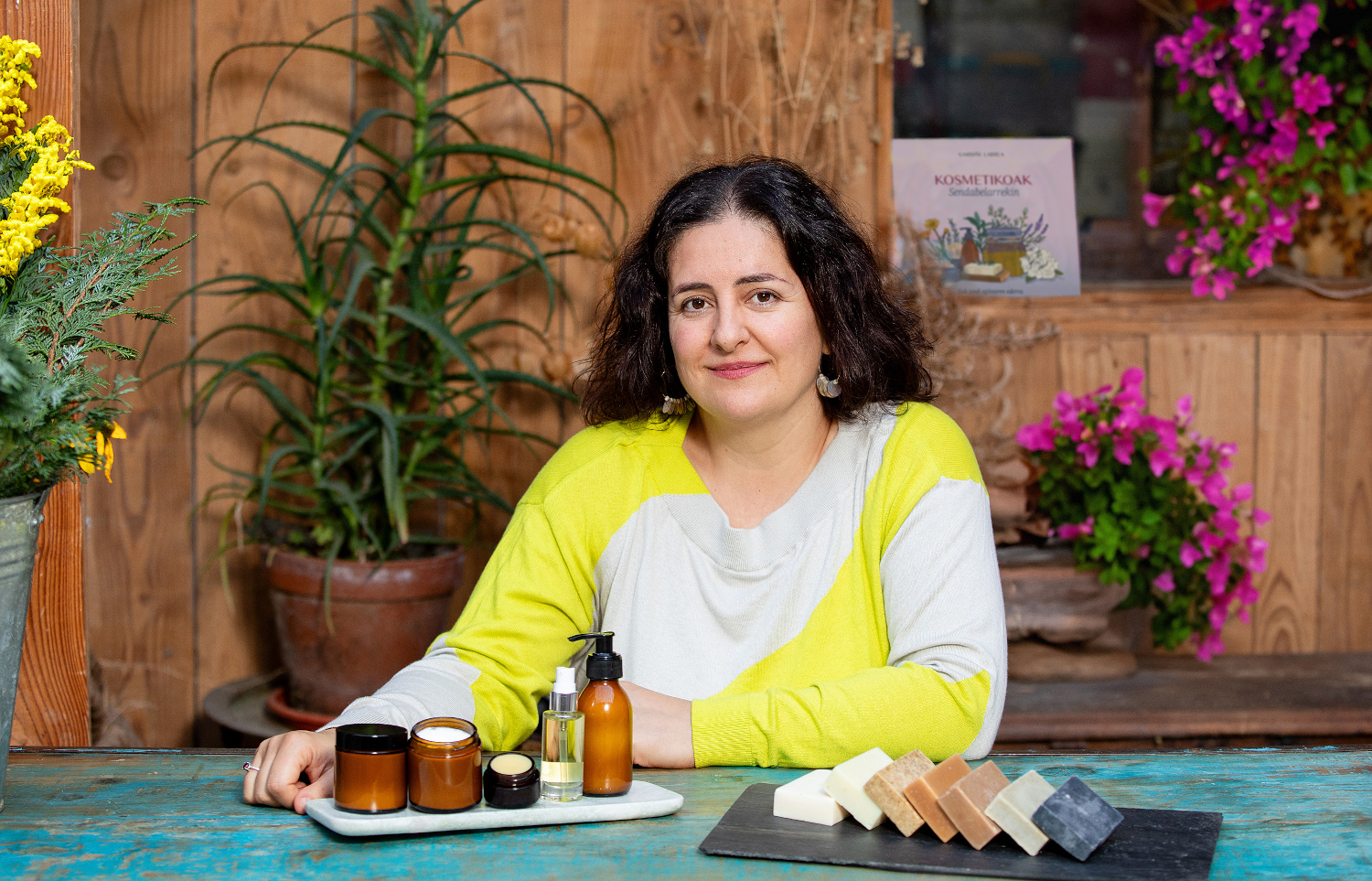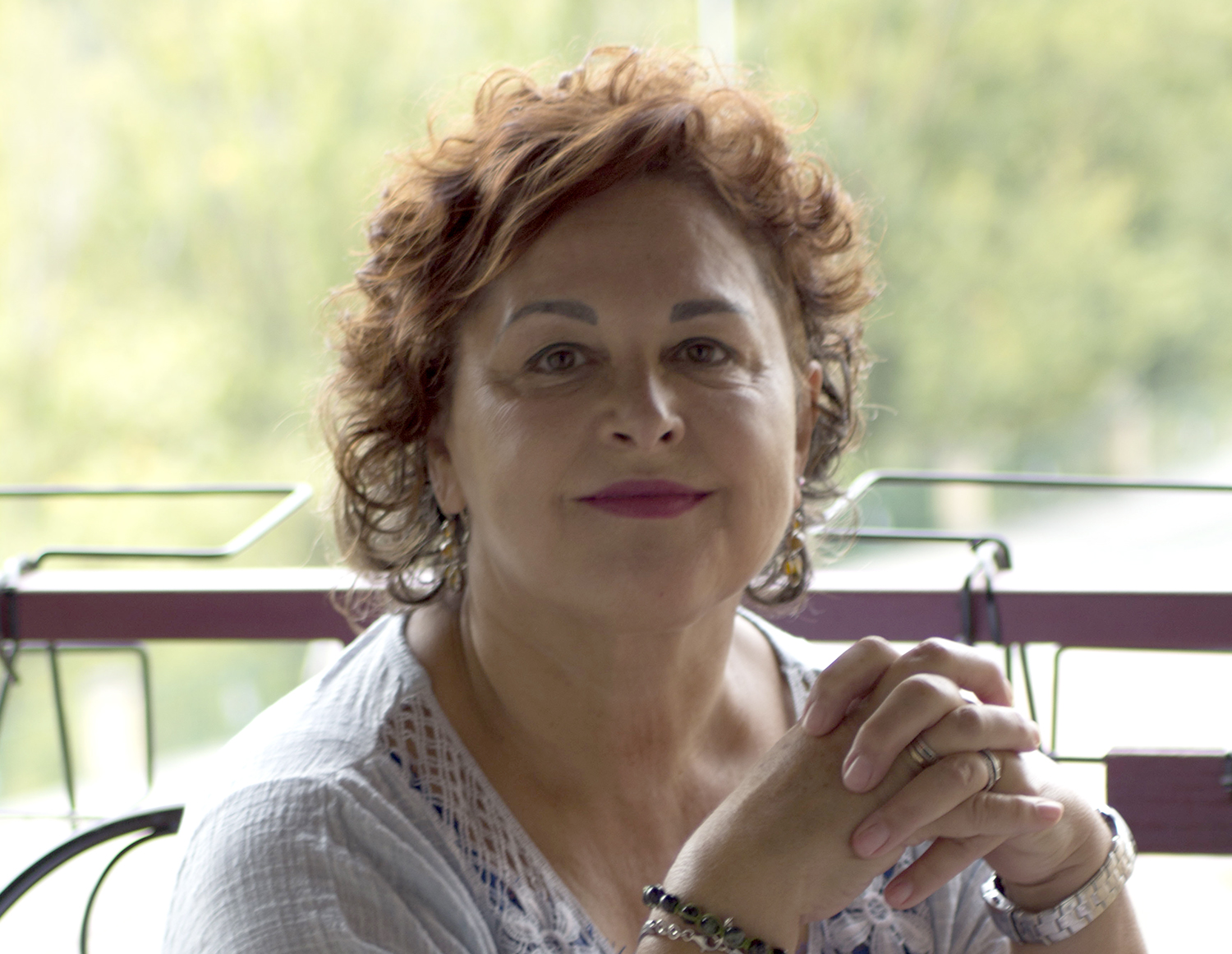"We who live the worst in menopause are Europeans"
- Maria Jesús Balbás holds a degree in Medicine and Surgery, homeopathic and gynecologist with extensive experience. In 2008 Good girls, this is over: A guide to dedramatize menopause (Girls, this is over: Guide to dedramatize menopause) and in 2009 Guide to a perfect (near) menopause (Guide to a near-perfect menopause). The consultation takes place in Zarautz. In the interview he has offered tools to fight the image of a weak, sad, sterile and sick woman who suffers menopause.
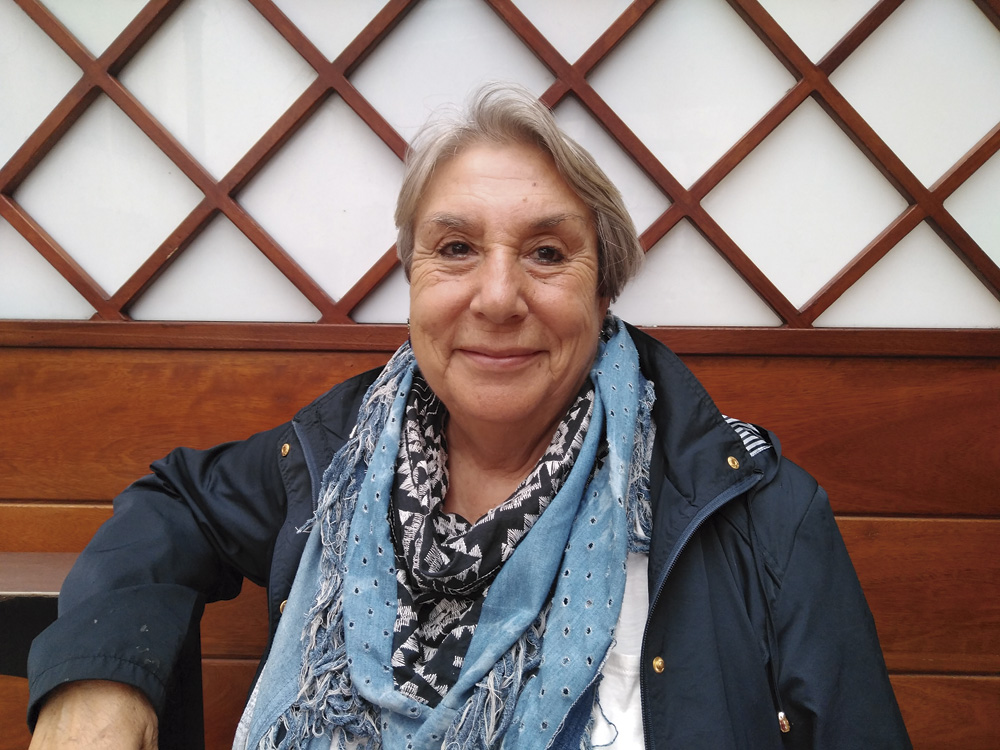
What is menopause? It can be difficult to define…
It has a simple definition. Menopause refers to a specific date, that of the last month. If menalgia is the first month, menopause is the last. It is the physiological moment of women's lives, which marks the end of the age of fertility without further ado.
The difficult thing is the construction that has been done around this time. Everything that happens in the life of women in this society becomes stigmatized and invisible. The goal is to empower women to feel that they need medical help for everything: for menopause, for pregnancy, for childbirth, for postpartum, for lactation or not, and for menopause. This medicalization is only a benefit for the pharmaceutical industry and is achieved through fear.
In the Middle Ages the Church took advantage of it and today it is done in the name of science. To address this threat, it is essential to have a gender perspective.
In the title of your first book you say: “Girls, this is over,” what exactly is it over?
Quite a lot. Fertility is over and most women find it wonderful, because I don't think there are many women who start to jump out of joy from an age knowing that they're pregnant.
However, there is a grief and we cannot deny it. Grief only occurs in women, as all other mammals can give birth until their death. This particularity has generated many questions, as women can spend almost half a life without being fertile. There are many hypotheses and in recent times the “grandmother hypothesis” is in the head; it seems that women cut off menstruation in order to help in the growth of their grandchildren.
I would like to highlight the verb ‘Help’. Today, it is considered normal for grandma to take care of her grandchildren, but it is clear that it is a reflection of our social model. In Norway, Germany and other countries, for example, there are two-year maternity leave, so the thing is very different.
There is another issue: at that time, women can focus on themselves. Perhaps for the first time in life, you may feel that you have no one to devote 99% of your attention to.
It seems that the socio-cultural context directly influences the way of living menopause.
Yes, observing menstrual anthropology, African women usually say when they reach menopause: “I don’t visit the moon anymore, now it’s me who supports the whole community and not just my children as before.”
I recommend the film Women Without Pause, which talks about experiences in different places around the world. The film clearly shows that we are Europeans with greater anxiety and worse lives, because we are powerless and lost. As you've been told and you've believed it's very dramatic all your life, you expect to live a very dramatic menopause. Dedramatize menopause.
However, instead of dedramatizing, it tends to stigmatize.
In what happens to the woman, the reaction is always “woe, what a shame!” The child has had her menstruation down at 13 years old and has had “ay, zer pity!” at 11 years old and “ay zer pity, right?” at 14 years old she hasn’t gotten off... “Ah!” At the age of 20, she has become pregnant… “Oh, you’ll waste your time, what a shame!” at 35. “What a shame, you can only have one, what a shame, you have to have them before!” He’s had it with 40... “What a shame!” She has no children… What a pity! She has had a C-section… “What a pity!”, she has given birth… “Oh, what a pity!”, she has breastfed… “Oh, what a pity,” she has only breastfed for four months… “Oh, what a pity!”, she has not given her… “what a pity!” Then comes menopause and… But let’s see, wasn’t it a shame to have menopause? Is it a pity not to have it? I don't get the bills right.
“A closet is a kind of cleaning, throwing everything you don’t need and staying with four things, managing all the old emotions. Menopause is a space of freedom, of a stroke of time for oneself”
All physiological stages of women's lives are underestimated. For example, I find it terrible that you want to eliminate menstruation with the pill. I once heard a gynecologist selling as a preview: “We will accompany the woman throughout her process, first we will remove her menstruation rule so she does not suffer; at 25 years we will take her eggs and store them in the laboratory, paralyzing ovulation and she says when she wants to be a child. At 37-39 years would be the right time, when he develops as a person. Then we will go directly to ‘Hormone Replacement Therapy’ to avoid menopause.”
That's not helping. We have not respected their process. Menopause is the time when women feed themselves. A closet is a kind of cleaning, throwing everything you don't need and staying with four things, managing all the old emotions. Menopause is a space of freedom, suddenly, of time for oneself.
What does “taking time for oneself” mean?
I always refer to four fundamental pillars. Diet, physical exercise, internal silence techniques (meditation) and, if necessary, may be a good time to propose therapy. Maybe not just with our closet and we need another one for the move. It is time to reflect on the meaning of life, on death, on the importance of things… Many women have had very hard life experiences and for that are the therapists.
I think they're important tools to solve this age, to deal with the small, uncomfortable changes and the society that despises you. I also consider homeopathy fundamental, as it performs a personalized treatment and can reach deep conflicts through the symptoms presented. Many things are repeated: too many worries, feeling of abandonment…
It must be clear, however, that every woman is a world and that every woman needs different help. Some do not need anything. What you really need ‘Hormone Replacement Therapy’ would be 1%. On the contrary, generalization and medicalization are the main trends, for example, prescribing antidepressants and somniferes.
Menopause is associated with loss of health and, in particular, with three main risks: myocardial infarction, breast cancer and osteoporosis. It is interesting to analyze why there are more breast cancers at this time, as current medicine does not analyze the causes. In clinical psychosomatic medicine, we know that osteoporosis has to do with self-esteem, contempt and physical inactivity. These diseases are also directly related to food.
You attach special importance to food.
It is very important. While we have the active sexual cycle, while we develop estrogen, it may be advisable to eat saturated fats, as the nucleus of estrogen is cholesterol. That's why girls who want to lose weight lose their rule. With menopause, however, the absence of estrogen causes fat to build up, often in the arteries, causing cardiovascular problems.
“Hormone replacement therapy would be 1%. On the contrary, generalization and medicalization is the main trend, for example, by prescribing antidepressants and somniferes”
In the diet there is little saturated fat, little meat and, on the contrary, vegetables, fruits, legumes, seeds and fish should have room. Many women are vegetarian at this time, and I think the instinct guides them to it. It is also advisable to make cooking workshops to learn how to cook instead of for others and talk about food. There is also the consumption of organic foods and whole meals.
In other times, ‘Hormone Replacement Therapy’ was sold as a salvation, both for warms and for the diseases to which I have referred. But over time it has become clear that no, that it has nothing to do with it and that the road is another; change diet and habits.
So who would be ‘Hormone Replacement Therapy’?
Early menopause due to ovarian withdrawal or the arrival of menopause at 36 years due to unknown causes. That, of course, is a disease, not just a physiological process. I compare it to Caesar. Should C-section be done? Yes, of course, when necessary, but not systematically in all cases. The same is true of this therapy.
Another of the ideas that I am very concerned about is that it should be said that women are suffering from depression at this time. This statement denotes a great lack of knowledge of depression. What women do in menopause is what has already been said, the cleaning of the closet, and some have at their disposal resources to deal with it, but others do not.
For example, if physical exercise is performed, a neurotransmitter called gaba is released, which prevents anguish, anxiety and insomnia, and may even prevent body vibrations. 85 percent of our brain neurons are gabaerasic, which means they get a gaba. So the question would be: How do we produce the gaba? The woman walking, an hour and a half, is making the gaba, so she will be able to face numerous conflicts and osteoporosis. In addition, you will feel better about yourself. It will also prevent circulatory and digestive problems. Physical exercise is, therefore, one of the bases for dealing with this stage.
Do you think we should redefine menopause?
Yes, it is clear that menopause has an abominable character. I have been a professor for many years and I asked my students to list the first things that came to my mind through the word menopause: old, death, cancer, intolerable, hysterical, unbalanced… It is terrible. As for the climacteric period before and after menopause, reference was made to “stage, arrival, resolution…”, but it is the same. The very word ‘menopause’ is catastrophic. I think we can't go back because the same word has a lot of weight and for the time being we can't delete it, but we have to change its meaning.
To do this, first of all, women should have a gender perspective, because empowerment is the way. It would be ideal to start with girls around 13 in the first process, in the one month process, so that they no longer take it for a curse. Reaching menopause would be reaching a moment of climax.
But we cannot forget where we came from. Hippocrates, considered the father of medicine, affirmed that in the lives of women menopause was a terrible time, at that time women became a dead body, a witch.
We have to create circles of women of different ages. We won't wait for them to save us. It would be suitable spaces to pass the witness and transmit to the adolescents information about different times of life. I believe that awareness must be this way, in a transversal and circular way, so that women can speak of themselves once and for all.
Gazteagotan baino lotsa handiagoa dauka, baina horrek ez dio saltsa askotan ibiltzeko gogoa kentzen Leire Zabalza Santestebani (Iruñea, 1990). Beste gauza askoren artean, Motxila 21 musika taldeko kidea da. Nabarmendu du musika gauza asko aldarrikatzeko bide izan... [+]
Miopia gero eta gehiago eta gero eta lehenago ari da garatzen, eta horren arriskua da dioptriak gehitzen joatea eta helduaroan begiari lotutako hainbat gaitz izateko aukerak dezente handitzea. “Eguzki-argia jasotzea inportantea da, eta denbora asko ez igarotzea oso gertu... [+]
Istorioetan murgildu eta munduak eraikitzea gustuko du Iosune de Goñi García argazkilari, idazle eta itzultzaileak (Burlata, Nafarroa, 1993). Zaurietatik, gorputzetik eta minetik sortzen du askotan. Desgaitua eta gaixo kronikoa da, eta artea erabiltzen du... [+]
This wedge that the announcement on the radio Euskadi to replace the bathtub with a shower encourages the commencement of the works in the bathroom of the house. A simple work, a small investiture and a great change are announced. There has been a shift in toilet trends and a... [+]












